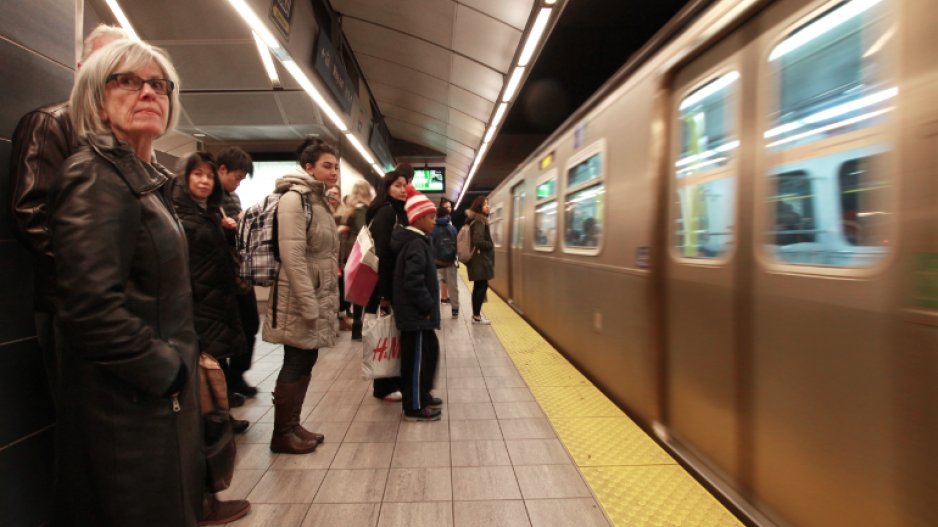The federal Liberal government plans to phase out the public transit tax credit on July 1 – exactly 11 years after the former Conservative government put that measure in place following its first budget.
The 15% credit had meant that someone who spent $91 per month on one-zone TransLink transit passes would save $163.80 for the year. Someone who bought 12 of the $170, three-zone TransLink passes in a year would save $306. Eliminating the credit is expected to boost federal coffers by about $200 million each year.
Despite eliminating an incentive for people to take buses and commuter trains, the budget touted the value of public transit and promised funding.
The government committed approximately $2.2 billion in its 2017-18 budget to TransLink projects in Metro Vancouver, according to TransLink Mayors’ Council executive director Mike Buda, who was in the budget lockup in Ottawa.
The budget text said “the government will invest $20.1 billion over 11 years through bilateral agreements with provinces and territories, with provincial and territorial allocations determined using a formula based on ridership (70%) and population (30%).”
Buda said that he crunched the numbers using that formula and that the result was the $2.2 billion figure for TransLink.
The budget text listed what it called “ambitious” transit projects that it expects to transform Canada’s cities over the next decade.
Along with projects in Ottawa, Calgary, Toronto and Montreal, there was only one project mentioned that is in Metro Vancouver: the Broadway Line extension.
Buda believes that federal funding will include money for light rail in Surrey even though it was not mentioned in the budget.
“Not only do I believe that [there will be funding for Surrey] but it was clarified by officials from the minister’s office who were in the lockup,” Buda said.
“They listed five projects in [four] different provinces as examples but they were just examples. $20 billion is going to buy a lot more than the five examples listed.”
He said that the government’s move to eliminate the tax credit for people who buy monthly transit passes will make public transit less desirable but that the impact will not be severe.
In Metro Vancouver, that lack of a severe impact is because transit riders are increasingly opting to use Compass cards that have stored value. By using stored value, riders get a discount compared with the regular fare.
“Stored value provides people a lot more flexibility – if you’re sick or on vacation,” Buda said.
“As more cities move to electronic cards, you’re going to see people shifting from a monthly pass to stored value. Then, they will say, ‘Why don’t I get a tax credit for this? That’s unfair.’ Then the feds will change the rules and it becomes a nightmare. It certainly appears at first read that the impacts may be significant for some customers. Anything that makes transit more expensive for riders is obviously a concern for us."
Other transit advocates in Metro Vancouver were supportive of the government's move to spend $2.2 billion on TransLink next year. Vancouver mayor Gregor Robertson called the move "a game changer."




